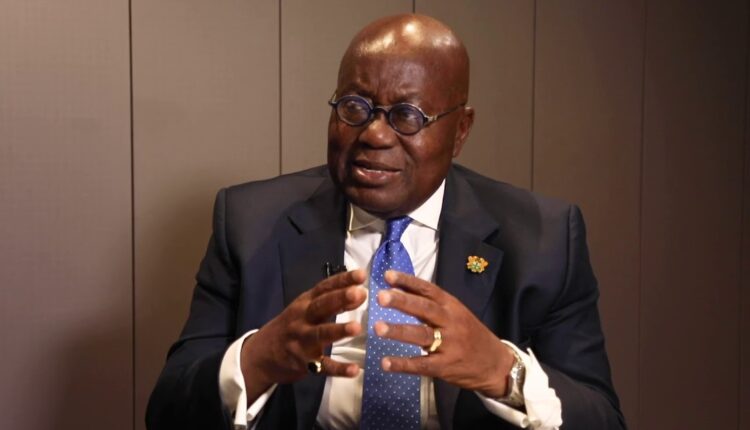Akufo-Addo approves interventions to cushion Ghanaians
President Nana Akufo-Addo has given the green light for implementing some initiatives to revive the economy amidst public agitations.
The programmes expected to be rolled out in the coming days were finalised after a three-day Cabinet retreat.
The Ghanaian economy has seen many challenges that the president has attributed to global occurrences, such as the COVID-19 pandemic and the Russia-Ukraine conflict that has disrupted the economies of many countries.
But some experts have expressed opinions that better management of the country would have saved the country from adverse impact.
Minister of Information, Mr Kojo Oppong Nkrumah, announced on Monday, 21 March 2021, after the meeting that:
“President Nana Addo Dankwa Akufo-Addo approved a number of far-reaching measures aimed at mitigating the depreciation of the Cedi, ensuring expenditure discipline, and providing relief in the face of global fuel price hikes and inflation as well as ensuring that priority programs meant to grow the economy are protected”.
The Finance Minister, Ken Ofori-Atta, is expected to provide the details of the measures after consultations with key social and economic stakeholders in the coming days.
Mr Oppong Nkrumah added that the government appreciates the efforts of all who contributed to a successful retreat and looks forward to the support of all Ghanaians in implementing the agreed measures.
According to the Ghana Statistical Service (GSS), Ghana’s consumer price inflation hit 15.7 per cent year-on-year in February from 13.9 per cent in January this year.
In March 2021, the Finance Ministry indicated that the government had spent GH¢19 billion on the COVID-19 fight.
It also clarified that GH¢1.7 billion was spent on the COVID-19 Alleviation Programme (CAP1) and Emergency Preparedness and Response Plan.
There is pressure on the government due to rising public debt estimated to be GH¢351.8 billion as of the end of 2021, an increase by GH¢60.2 billion from the same period in 2020, according to the Summary of Economic and Financial data released by the Bank of Ghana in March 2022.
Meanwhile, total revenue mobilised within the period stood at 15.4 per cent of revenue, with tax rating registering a paltry 12.6 per cent of GDP, far below the regional average.
Even though crude oil supply bottlenecks have caused a surge in prices on the international market due to ongoing conflicts between Russia and Ukraine, the situation has been compounded by the depreciation of the Ghana Cedi against other major currencies amidst a possible interest rate hike.
This had resulted in fuel price hikes that have surged beyond 18 per cent in the second pricing window of March.
At the beginning of 2022, petrol and diesel traded at an average GHS6.30 per litre at the pumps.
By March 2022, fuel prices crossed the GHS 8 per litre mark but are now being sold as high as GHS 11 at some pumps in the country.
It is barely a month since transport fares were increased by 15%, and there are fears of another increment in the coming weeks, which could have a ripple effect on the prices of goods and services across the country.
The new measures taken by the government are expected to address these concerns.


